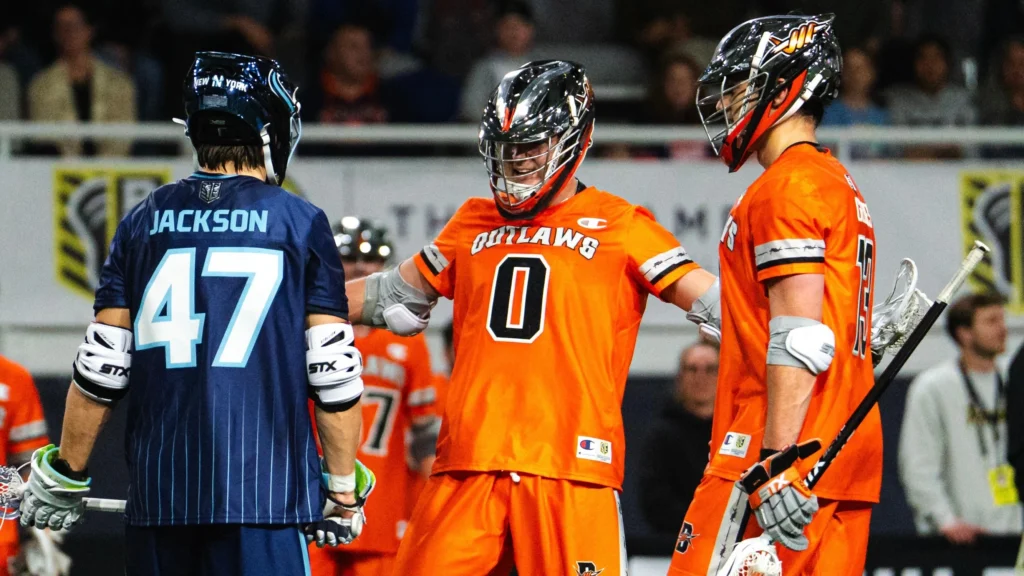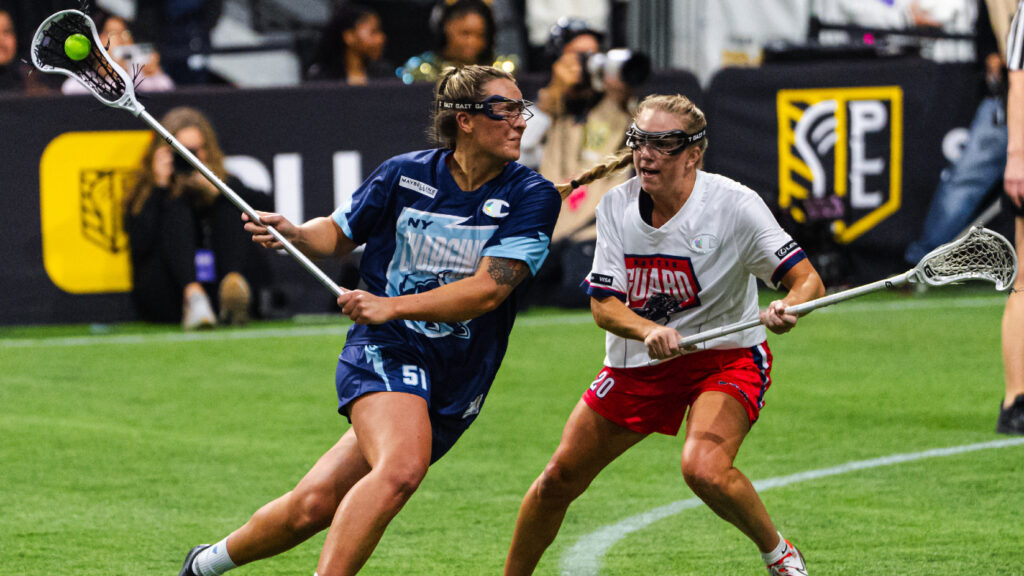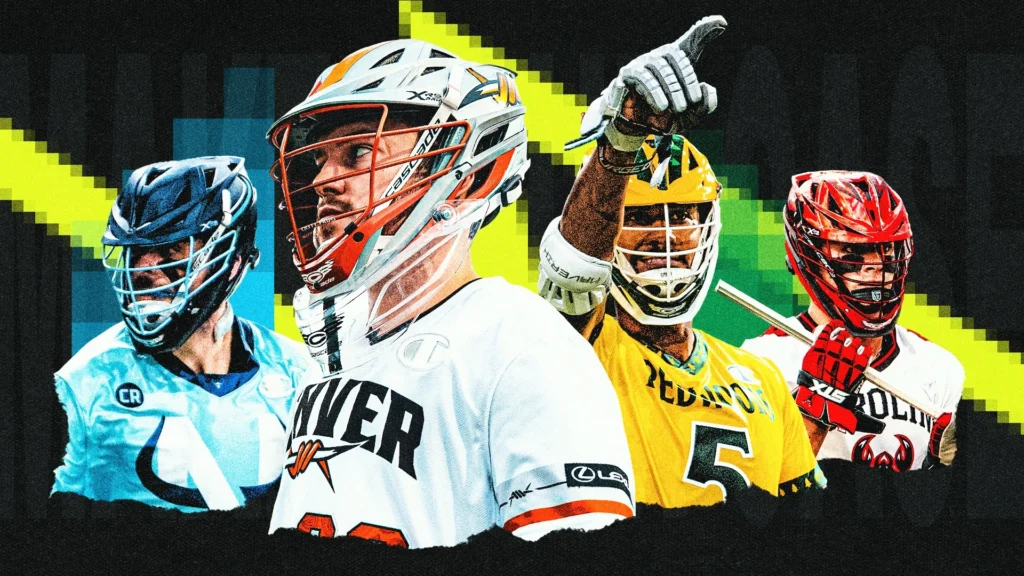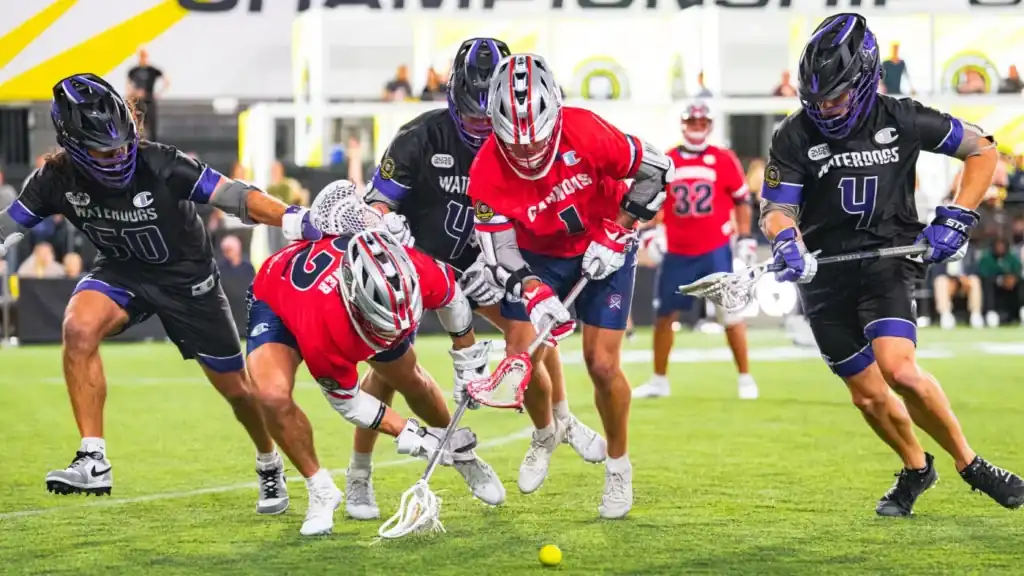
Did the Waterdogs build the blueprint for defense in Sixes?
By Zach Carey | Feb 5, 2025
How does a defense consisting of five short sticks slow down the best offensive players in the world who get the benefit of a 13-yard two-point arc?
Through two editions of the Championship Series, there isn’t one clear answer. The double-edged sword of having to guard elite dodgers with a short stick while also needing to extend to shooters from 13 yards out cuts deep on both sides. Against dual threats like Asher Nolting and Grant Ament, in particular, deciding whether to slide or stay home is no easy choice.
In 2024, the Philadelphia Waterdogs rolled out a defensive approach that prioritized limiting two-pointers and forcing opponents to win individual matchups. That was particularly relevant against the Boston Cannons, who boasted an offense loaded with shooters, including Marcus Holman and Matt Campbell, who fed off the shots that Nolting produced for them as a dodger.
Instead of letting Boston tee off from deep, the Waterdogs forced Nolting to beat them one-on-one. In the clubs’ first matchup, that limited Nolting and the Cannons to just 12 points. Nolting had his worst game of the week with two goals, two assists, two turnovers and just 13 touches.
That strategy confounded Nolting – who is both a dominant physical dodger and an elite passer – as Philly didn’t have a hot defender ready to slide when he initiated a dodge. He kills defenses because he always has his head up and can exploit a moment of hesitation in the slide rotation. Because the Waterdogs chose to not slide and trusted their best defenders to own the matchup, Nolting struggled to adjust to engaging isolation mode.
While the Cannons hit 5.3 two-balls per contest in their games against non-Waterdogs opponents last year, they didn’t make a single shot from deep versus Philly in pool play. In fact, Boston only attempted four twos in that matchup compared to the Waterdogs’ 14 attempts and seven makes. That was the difference in the game as Philadelphia won 22-12 and earned the No. 1 seed in the semifinals.
The championship game two days later was a different story, though. Nolting embraced winning his matchup, shooting the ball 11 times on his 19 touches and scoring six goals in the process. That helped push Boston over Philly as Nolting dodged through Christian Scarpello in the final minute of regulation to send the game to overtime before Matt Kavanagh notched the game-winner.
Even though the Cannons won, the Waterdogs’ defensive game plan still limited them. Boston only hit 1 of 8 two-pointers in the championship and only assisted five of its 22 goals while turning the ball over seven times. Nolting is a special player who can win one-on-one over and over and over again across 32 minutes. That’s an exhausting endeavor, though.
Assisted two-pointers are the most valuable shot in the Champ Series. By taking them away and forcing opponents to hit unassisted ones (the least efficient shot), the Waterdogs played the numbers game and almost won doing so. The problem was that Nolting and Boston’s other threats proved to be too much in those individual matchups.
So, is the threat of the assisted two-point shot so valuable that it’s worth allowing guys like Nolting to dodge without sending help?
“Yeah, 100%,” Ament said. “Just because the two-point swing is a lot.”
“If you have an unguardable guy, somebody like Asher, you have to pick your poison,” Utah Archers head coach Chris Bates added.
“You’re better off giving up a one-point goal to a guy who’s having to beat his guy out of the dodge shooting with pressure on him versus a guy shooting with his arms and hands free,” Rob Pannell commented.
That being said, having a one-size-fits-all scheme is a risk. Adapting to individual players’ strengths is a more sustainable approach.
“There are certain guys who are black holes where, if they’re going, they’re going and it’s not coming out,” Bates explained. “[Against] those guys, you’re much more comfortable pushing [them] to a specific area and then doubling and then letting the defense rotate around if the ball does come out.”
“[Against] somebody like Grant or Asher … you have to pick your poison,” Bates said. “You can’t be too overly predictable. In terms of when you go, if you go, where you go. You want to keep teams on edge a little bit.”
Pannell agreed, noting that “it’s definitely a matchup-by-matchup scenario and teams will have to adjust accordingly.”
Since the Waterdogs didn’t qualify for the 2025 Lexus Championship Series, the Archers could be the group to take the mantle as the best defensive team in the tournament this year.
While they’ve added offensive firepower – including Ament and Mac O’Keefe – to the roster that went 0-4 in 2024, their strength could be on the defensive end. All three of their short-stick defensive midfielders will be suiting up, as will rookie sensation Mason Woodward – who’ll use a short stick for the first time in his professional career.
Second year Piper Bond and rookie Beau Pederson are the names to watch as potential Nolting stoppers. One of the flaws of Philly’s defense last year was that its defenders could not sustain Nolting’s physically punishing style for 32 minutes. Utah’s slew of big-bodied guys might be able to, though.
With Pederson (6-foot-4, 210 pounds), Bond (6-foot-2, 200 pounds), Woodward (6-foot-2, 210 pounds) and Connor Maher (6-foot-1, 187 pounds), the Archers’ defenders are the best suited to handle the load that the 6-foot-3, 230-pound Nolting brings to the party. Pederson, in particular, is a Champ Series match made in heaven as a lockdown defender who can also make plays on the other end.
“He’s kind of tailor-made for this format. He’s Piper plus 20 pounds and can shoot the ball really freaking hard and well with both hands,” Ament said. “Especially going against guys like Asher Nolting and Matt Rambo, these bigger, bulkier guys, you need some size. And Beau is going to be put to the test a lot for us, and we’re going to need to rely on him in a big measure.”
Stopping the big bodies of the Champ Series such as Nolting, Rambo and Myles Jones should be priority No. 1 for defenses next week. Part of that solution should correspond with forcing them to win one-on-one matchups and trusting defenders to dig in on-ball.
Even though the Waterdogs lost last year, their defensive approach still contained the most dangerous offense in the tournament by limiting two-pointers and only giving up the least efficient type of shot. In this format, that’s all a defense can hope to accomplish.
